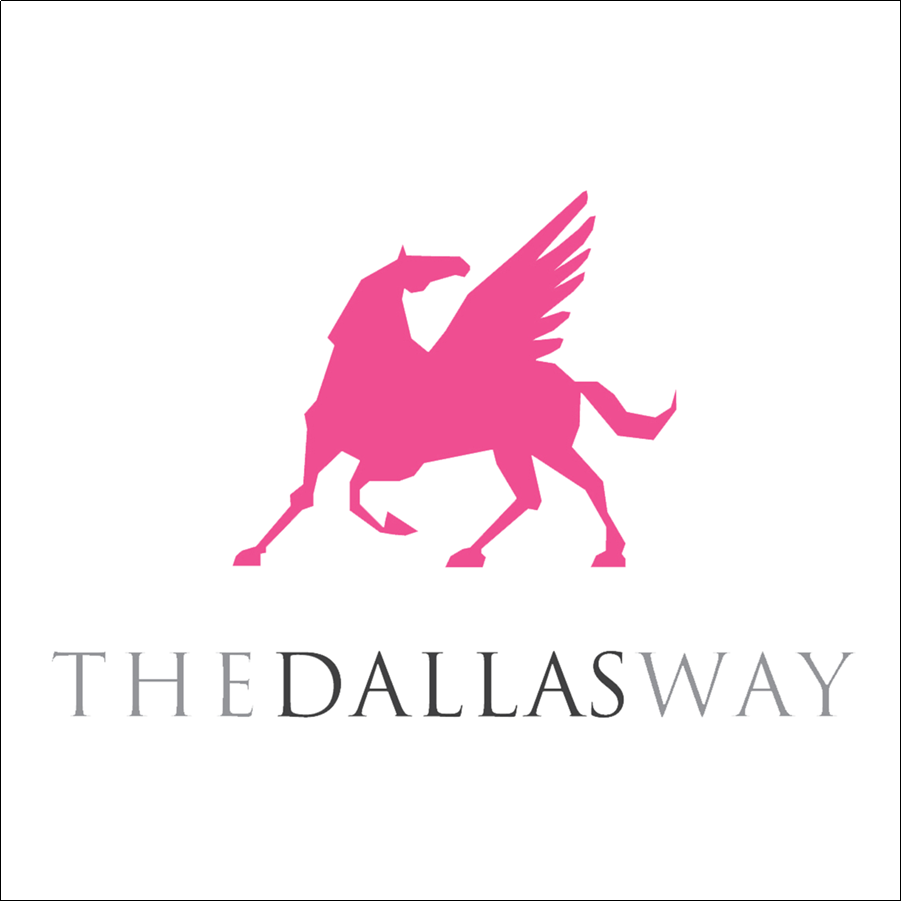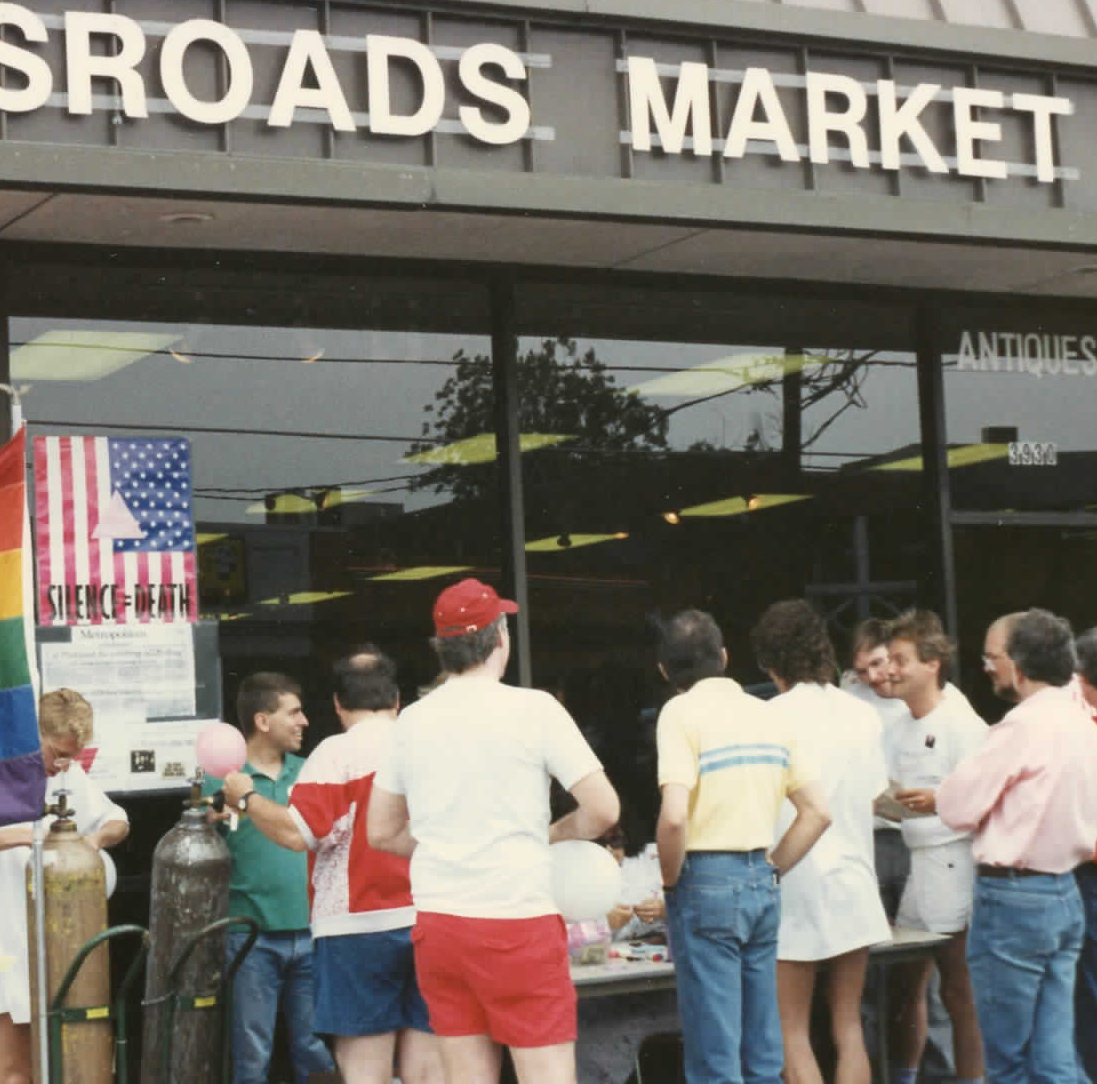By William Waybourn
Crossroads Market initially began as “Oak Lawn Junk Company” located in the back of Butler’s Pantry at the Oak Lawn “crossroads” of the lesbian and gay community at Cedar Springs and Throckmorton. In the fall of 1980, Bill Nelson and Terry Tebedo approached William Waybourn and Craig Spaulding about being partners in taking over the entire space, as Butler’s Pantry was moving to Arizona.
Crossroads Market as the store opened on December 5, 1980 with various “merchants” hosting their own spaces, much like an indoor flea market. Nelson and Tebedo expanded their “early marriage” line of wardrobes and dressers and accessories, Spaulding and Waybourn added in greeting cards and LPs, mostly film music, while Phil Johnson brought in books and candles. Plus there were eight other vendors with various merchandise, art, ceramics, jewelry, etc.
Although it was not the intent of the owners, Crossroads Market quickly became the de facto community center that Dallas needed and a hotbed of activism. Various groups were given space to meet in the back of the store at no charge and the migration to Oak Lawn where lesbians and gay men could be themselves openly and safely increased.
William Waybourn (black jacket) in Crossroads Market
By the mid-80’s, Nelson, Tebedo, Waybourn and Spaulding bought out almost all of the other vendors, and as such, increased the merchandise mix to add framing, vitamins and more greeting card “fronts” than any other store in the area. In April 1986, disaster struck in the form of overhead light ballast that caught fire and dropped down onto an old rug, igniting it. The resulting fire was a total loss and occurred only a few days after Nelson had lost an election for a seat on the Dallas City Council. Even worse was Tebedo’s subsequent diagnosis with non-Hodgkin’s Lymphoma.
Because the store enjoyed such strong support from the community, it was rebuilt anew and restocked, becoming the largest “gay” store between San Francisco and New Orleans. Its book section was one of the largest in the country and sales flourished with the addition of flowers and expanded sections for candles, condoms, cards and decorative accessories. Each weekend various organizations or groups host fundraisers used the store’s corner to sell tickets or push political messages.
With Tebedo’s death in 1988, Waybourn moved his offices to the back of the store and played more of a managerial role as Nelson decided to run again for the council. Despite the loss, the election expanded the awareness of the large lesbian and gay community in Dallas, but Nelson’s own illness began to take its toll.
In February 1990, Nelson died and Waybourn and Spaulding continued to operate Crossroads Market for another year, selling it in April 1991.
Karen Estes at Crossroads Market
The new owners transformed the store from a community-based business to one focused solely on commerce, as it should be, but the decade of activism that had driven the store ended.
Between 1980 and 1991, Crossroads Market helped nurture many Dallas organizations, a theater group, a youth group and women’s groups by giving them a safe haven to meet and discuss topics of mutual interest.
At the height of the AIDS crisis, two men were discovered sick in a Dallas suburb, with no money, no food and no electricity. Crossroads Market removed its Christmas display from its front window, devoting it instead to a single barrel and a sign as a plea for help. Within hours, the response was so overwhelming that the window had to be “harvested” daily as more and more customers arrived with shopping bags full of groceries and supplies.. Not only were the two men taken care of, but also it was the beginning of the Food Pantry, later affiliated with the Dallas AIDS Resource Center.




